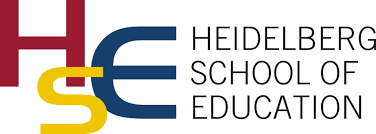Social learning platforms in higher education. Cooperation, privacy and research perspectives
Identifiers (Article)
Identifiers (Files)
Abstract
Over the last years, universities have begun to offer a generation of new tools and services for educational purposes, among them social learning tools, personal cloud storage, and video platforms. Social learning platforms complement established learning management systems by presenting a more user-centred, personalised, and open environment for learning und collaboration. This provides learners with more options for self-regulated, research-oriented work, and formative assessment formats such as digital portfolios, both individually and in cooperation with others. Students in teacher training degrees benefit from this development, because social learning platforms provide a non-hierarchical, virtual space for organising, communicating and sharing resources in autonomously created online groups. This allows for new teaching and research perspectives. This paper focuses on the possibilities for educational research that result from this new development. Data literacy as well as the need for ethical norms for educational research based on digital data traces are central elements here. This paper therefore examines ways of ensuring a respectful culture in social learning environments for researchers as well as learners, for example through codes of ethics, and gives an overview of educational research perspectives. These are set in relation to the growing field of learning analytics, and the judicial as well as ethical questions that surround it.
Statistics






